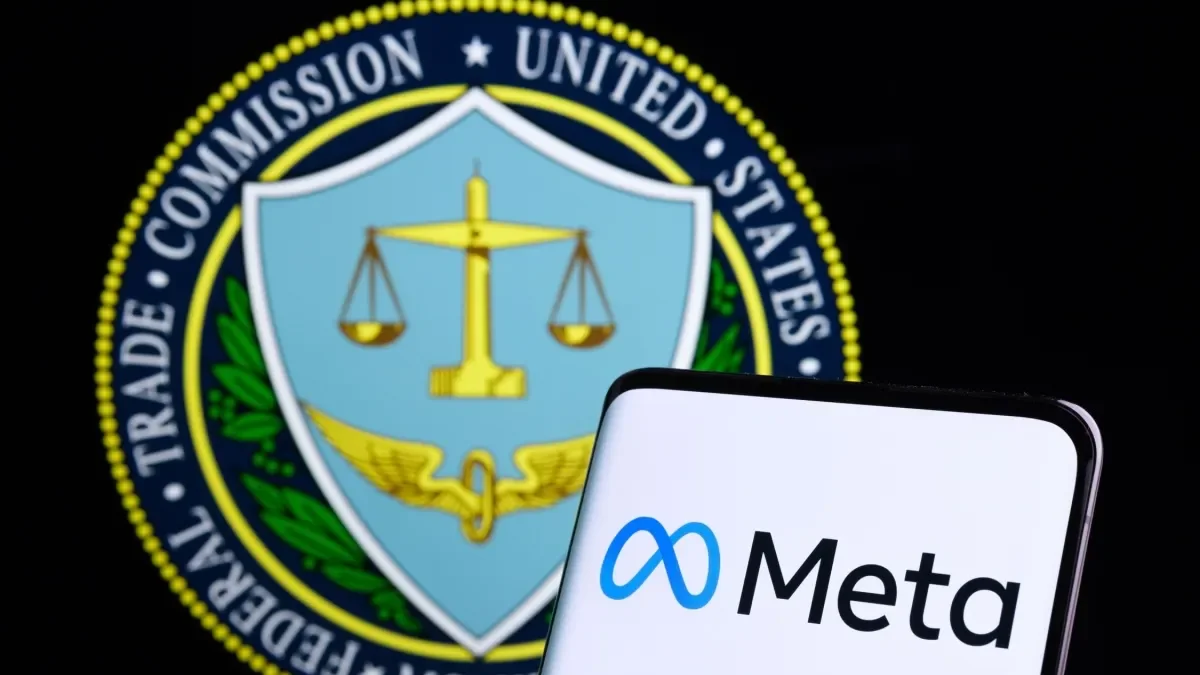Necessary Always Active
Necessary cookies are required to enable the basic features of this site, such as providing secure log-in or adjusting your consent preferences. These cookies do not store any personally identifiable data.
|
||||||
|
||||||
|
||||||
|

US social media giant Meta will be taking on the Federal Trade Commission (FTC) on April 14 in an antitrust trial, CNBC reported. The Meta vs the FTC trial could lead to divesting of Whatsapp and Instagram. The upcoming trial will take at least two weeks, it will focus on FTC’s claims that Meta has been monopolizing the social networking market.
The FTC says Meta platform’s acquisition of Instagram and Whatsapp should not have been allowed to happen. Meta acquired WhatsApp for $19 billion back in 2014 and Instagram for $1 billion in 2012. Through the Meta antitrust case, the regulatory authority wanted these platforms removed from the social media giant.
“Acquiring these competitive threats has enabled Facebook to sustain its dominance—to the detriment of competition and users—not by competing on the merits, but by avoiding competition,” the FTC said in its filing.
The FTC argues that Meta has monopolized the personal social networking market. According to the agency, there are no major options to Meta’s social media apps like Instagram and Facebook that people use to communicate and stay updated. In its pre-trial filing last week, Meta denied the accusations that its move to acquire Instagram and Whatsapp harmed competition in the social networking industry.
The legal filing shows that Meta’s top leadership will be testifying in the upcoming trial. These include CEO Mark Zuckerberg, Instagram co-founder Kevin Systrom, and former Meta COO Sheryl Sandberg.
Experts say that the upcoming FTC lawsuit against Meta will test the boundaries of antitrust US laws in addressing corporate acquisitions. To win the trial, the FTC must prove that Meta’s decision to acquire WhatsApp and Instagram monopolized the social media market and harmed competition.
“It’s a big case because it involves Meta, a social media giant, and it involves one of the most important kinds of markets in the world, the social media market. It has big implications for something that consumers use as part of their daily life, Instagram and WhatsApp,” UC Berkeley Law Professor Prasad Krishnamurthy said.
This is not the first time the FTC has filed an antitrust case against the social media giant. Back in 2020, the regulatory authority filed similar charges against Meta. The case was dismissed in 2021 after the US District Court in Washington ruled that the agency lacked sufficient evidence to demonstrate that Facebook held market power.
After the dismissal, the federal agency amended the complaint and filed another case in August 2021. The amended accusations included additional details about Meta’s user statistics and metrics in comparison to competitors like Snapchat, Myspace, and Google+ at the time. The amendments convinced the Washington court to allow the case to proceed in 2022.
“Although the agency may well face a tall task down the road in proving its allegations, the Court believes that it has now cleared the pleading bar and may proceed to discovery,” Judge James Boasberg of the U.S. District Court in Washington stated.
Last April. Meta attempted to end the case, but Judge Boasberg ruled that it must go to trial. In a mini victory for the tech giant, Boasberg dismissed FTC’s claim that Facebook maintained dominance by denying third-party app developers access to its platform.
During the Monday trial, experts expect the tech giant to push back on Meta’s monopoly allegations by FTC. In the latest pre-trial brief, lawyers from Meta claimed that the federal agency does not acknowledge the many rivals that the social media giant competes against. These include YouTube, TikTok, and iMessage. The disputed idea of the market that tech giant operates in could shape the outcome of the case.
“When you look at antitrust cases, the market definition that comes out of the case, even what ends up being the one that determines the ruling, is often not anything remotely like how lay people or even businesses in that market will describe it,” Krishnamurthy added.
Judge Boasberg could take months before issuing a ruling after the Meta FTC trial concludes in the coming weeks. It’s still not clear how President Donald Trump’s appointment of Andrew Ferguson as FTC Chair could impact the case. Former FTC Chair Lina Khan has a reputation of being tough on businesses in the tech industry. During her term, she filed antitrust cases against Nvidia, Amazon, Microsoft, and Meta. Some experts think that under Ferguson, the FTC could ease antitrust enforcement.